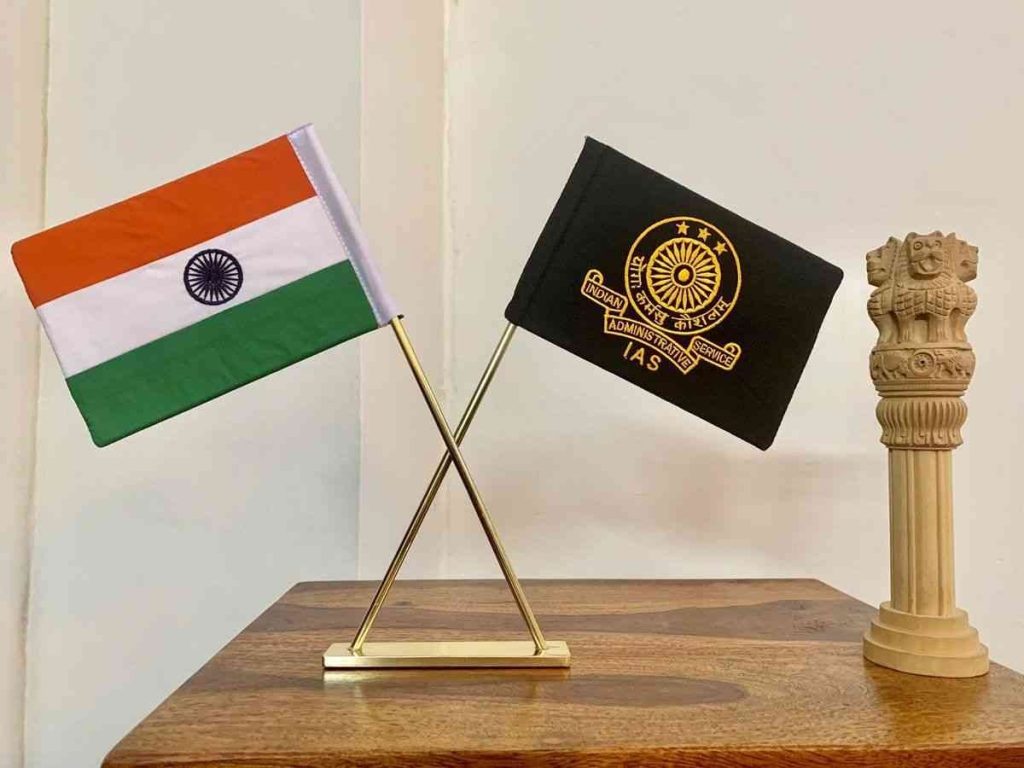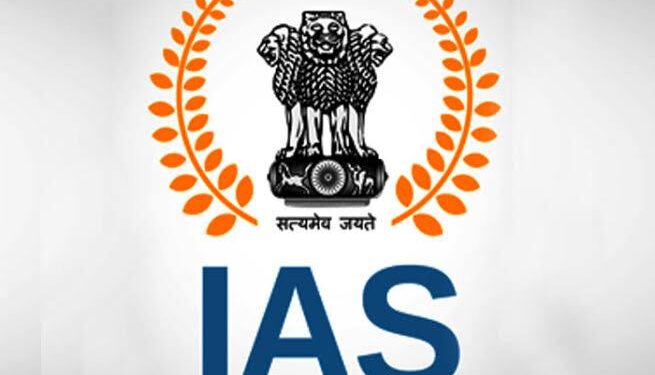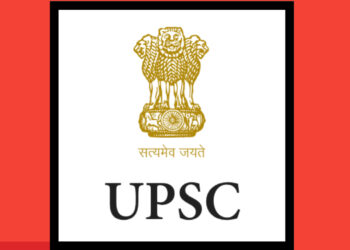Introduction
Master These 7 Habits For IAS Exam Success 2025 The Indian Administrative Service (IAS) exam is one of the most prestigious and challenging competitive exams in India. Thousands of aspirants from across the country appear for the exam each year, but only a few make it to the final list of successful candidates. The key to cracking the IAS exam is not just hard work; it requires a systematic approach, disciplined habits, and a deep understanding of the syllabus.
In this article, we will explore the top 7 habits that can make a huge difference in your IAS exam preparation. These habits will help you manage your time better, improve your productivity, stay focused, and maintain mental well-being throughout your preparation journey. By incorporating these habits into your daily routine, you can significantly increase your chances of success in the IAS exam 2025.
1. Consistency in Daily Study
Consistency is one of the most important habits for success in any competitive exam, and this is especially true for the IAS exam. The vast syllabus, coupled with the need for in-depth understanding, requires daily commitment. Without consistency, it’s easy to fall behind or get overwhelmed by the scope of the material.
How to Build Consistency:
- Set a Routine: Develop a study routine that includes fixed hours of study each day. Try to stick to the routine even on weekends and holidays to maintain a steady pace.
- Time Management: Allocate specific time slots for each subject, giving priority to areas that need more attention. A well-structured schedule will help you balance different topics effectively.
- Avoid Long Gaps: Avoid taking long breaks between study sessions. Even if you’re feeling fatigued, try to study in short, focused bursts with brief breaks in between to maintain concentration.
Why Consistency Matters:
- Cumulative Progress: Consistent effort, even if it seems minimal on a daily basis, will compound over time, leading to significant progress in your understanding of subjects.
- Prevents Overwhelm: With consistent study, you won’t find yourself cramming at the last minute. This reduces the pressure during the final weeks of preparation.
2. Smart Time Management
Time management is crucial when preparing for the IAS exam, given the extensive syllabus and the multiple stages of the exam (Prelims, Mains, and Interview). Effective time management will help you balance your studies, revision, and personal life, ensuring that you can cover everything without feeling overwhelmed.
Tips for Effective Time Management:
- Daily and Weekly Timetable: Plan your study time in advance. Create a daily and weekly timetable, keeping your long-term goals in mind. Divide your day into productive study blocks, interspersed with short breaks to recharge.
- Prioritize Tasks: Start your day by tackling the most difficult subjects first, as your mind is fresh at the beginning of the day. Focus on subjects that require more time or have a greater weight in the exam.
- Track Progress: Use tools like calendars, planners, or apps to track your progress. This will keep you motivated and help you assess whether you are on track with your study schedule.
Why Time Management is Critical:
- Coverage of Syllabus: Time management allows you to allocate time for all subjects, including General Studies and your chosen optional subject, ensuring that you don’t miss any critical topics.
- Prevents Procrastination: Proper time management helps you stay focused on your goal and avoid procrastination, which can lead to unnecessary stress closer to the exam.

3. Making Effective Notes
Making your own notes is an invaluable habit when preparing for the IAS exam. Notes serve as a quick reference, especially during the revision phase. They help in summarizing vast topics into concise and easily digestible information.
How to Make Effective Notes:
- Use Bullet Points and Headings: Break down the content into smaller, manageable sections with headings, subheadings, and bullet points to make it easier to understand and recall.
- Highlight Key Concepts: Highlight or underline key facts, dates, definitions, and other important information so that they stand out for quick revision.
- Include Visual Aids: Diagrams, charts, and mind maps are particularly helpful in subjects like Geography, Economics, and Science & Technology. Visual aids can simplify complex topics.
- Review and Revise Notes Regularly: Go through your notes regularly to refresh your memory and reinforce learning.
Why Notes Are Important:
- Improves Retention: Writing your own notes helps you retain information better, as it involves active learning.
- Saves Time During Revision: Notes allow you to revise faster without needing to go back to textbooks. When you need to brush up on concepts closer to the exam, your notes will be a valuable resource.
Read more
4. Staying Updated with Current Affairs
Current affairs play a critical role in the IAS exam, especially in the General Studies papers. The Prelims, Mains, and Interview all have a heavy emphasis on current events, government policies, and socio-economic issues.
How to Stay Updated:
- Daily Reading: Make it a habit to read newspapers like The Hindu or Indian Express daily. These provide comprehensive coverage of national and international issues.
- Monthly Magazines: Subscribe to monthly current affairs magazines such as Yojana, Kurukshetra, and Economic and Political Weekly (EPW). These publications give in-depth analysis and explanations of key topics.
- Digital Platforms: Leverage online platforms and apps like BYJU’s, Vision IAS, or Study IQ that offer daily current affairs summaries, quizzes, and video analyses.
- Make Notes on Current Affairs: Regularly make notes on important current events, policies, government schemes, and international relations. This will help you consolidate your learning.
Why Current Affairs Matter:
- Informed Decision Making: Keeping up with current events will improve your ability to answer questions related to government policies, economics, and social issues in the exam.
- Critical for Interviews: Current affairs knowledge is essential during the Interview stage, as most questions are based on recent events and issues.
5. Regular Revision and Mock Tests
Regular revision and mock tests are integral to your IAS exam preparation. The vast syllabus requires continuous revision to keep concepts fresh in your mind. Mock tests help you assess your preparation and identify areas where you need to improve.
Tips for Effective Revision:
- Spaced Revision: Don’t leave all your revision for the last minute. Instead, adopt a spaced revision approach, where you regularly revisit subjects or topics you studied a few weeks or months ago.
- Prioritize Weak Areas: During revision, focus more on the subjects or topics that you find difficult, and ensure that you revise them thoroughly.
- Take Mock Tests: Enroll in a test series to practice solving mock papers. Time yourself during mock tests to simulate exam conditions and improve your time management skills.
Why Revision and Mock Tests Are Essential:
- Reinforces Learning: Regular revision reinforces what you have learned, helping you retain information for a longer time.
- Builds Confidence: Mock tests help you familiarize yourself with the exam format, boosting your confidence for the real exam.
- Identifies Gaps: Mock tests show you areas where you are underperforming, helping you focus on improving these areas.
6. Maintain Physical and Mental Well-being
Preparing for the IAS exam is a long and strenuous journey, and it’s easy to neglect your physical and mental health in the process. However, staying healthy is essential for maintaining focus and productivity during your preparation.
How to Take Care of Your Health:
- Exercise Regularly: Physical activity boosts energy levels and improves concentration. Aim for at least 30 minutes of exercise every day, whether it’s a walk, yoga, or gym workout.
- Balanced Diet: Eat a balanced diet with sufficient nutrients to fuel your body and mind. Include vegetables, fruits, proteins, and whole grains in your meals.
- Adequate Sleep: Get 7-8 hours of sleep every night to ensure your mind remains sharp and rested for study.
- Mental Relaxation: Practice meditation, deep breathing exercises, or mindfulness to reduce stress and maintain mental clarity.
Why Health is Crucial:
- Sustained Focus: Good physical and mental health helps you focus better and sustain long study hours.
- Prevents Burnout: Maintaining a healthy routine reduces the chances of burnout, helping you stay motivated and consistent in your preparation.
7. Develop a Positive Mindset
A positive mindset is vital throughout your IAS preparation journey. The path to success is challenging, and setbacks are inevitable. However, maintaining a positive attitude can help you bounce back from failures and keep moving forward.
Tips for Cultivating Positivity:
- Set Realistic Goals: Break your larger goals into smaller, achievable milestones. Celebrate each milestone to maintain motivation.
- Stay Away from Negativity: Avoid negative people or distractions that can demotivate you. Surround yourself with supportive and like-minded individuals.
- Affirmations: Practice positive affirmations, where you remind yourself of your strengths and capabilities. Visualize your success to stay focused on your goal.
Why Positivity is Important:
- Increases Resilience: A positive mindset will help you cope with the stress and pressure of preparation.
- Enhances Motivation: Staying positive fuels your drive to continue working hard and helps you stay dedicated to your goal.

Conclusion
Success in the IAS exam 2025 will require consistent effort, discipline, and smart strategies. By incorporating the habits outlined in this article – from maintaining consistency in daily study, effective time management, and making regular revision a priority to taking care of your mental and physical health – you will be well on your way to achieving your goal of becoming a civil servant. Stay focused, stay positive, and most importantly, believe in your ability to succeed.
Read more
(FAQs)
1. How can I start my IAS preparation for the 2025 exam?
Begin by understanding the exam syllabus and exam pattern. Create a study schedule that balances General Studies, Optional Subjects, and current affairs. Stay consistent, make effective notes, and prioritize regular revision.
2. How many hours should I study each day for the IAS exam?
Ideally, study for 6-8 hours a day, with focused study sessions and breaks in between. The amount of time can be increased as the exam date approaches, but consistency is more important than long hours.
3. What study materials are essential for IAS preparation?
NCERT books for foundational knowledge, standard reference books for specific subjects, newspapers for current affairs, and magazines like Yojana and Kurukshetra are key resources.
4. How can I improve my answer writing skills for the IAS Mains?
Practice writing answers regularly under timed conditions. Focus on clarity, precision, and structure. Take feedback from mentors or peers to improve your writing style.
5. How do I stay motivated throughout my preparation?
Break your goals into smaller, achievable tasks. Celebrate small victories, stay connected with supportive peers, and remind yourself regularly why you started this journey.
6. Should I join a coaching institute for IAS preparation?
Coaching institutes can help with structured learning, expert guidance, and mock test practice. However, coaching is not mandatory if you are disciplined and self-motivated. Many successful candidates have cleared the exam with self-study.
Read more
















